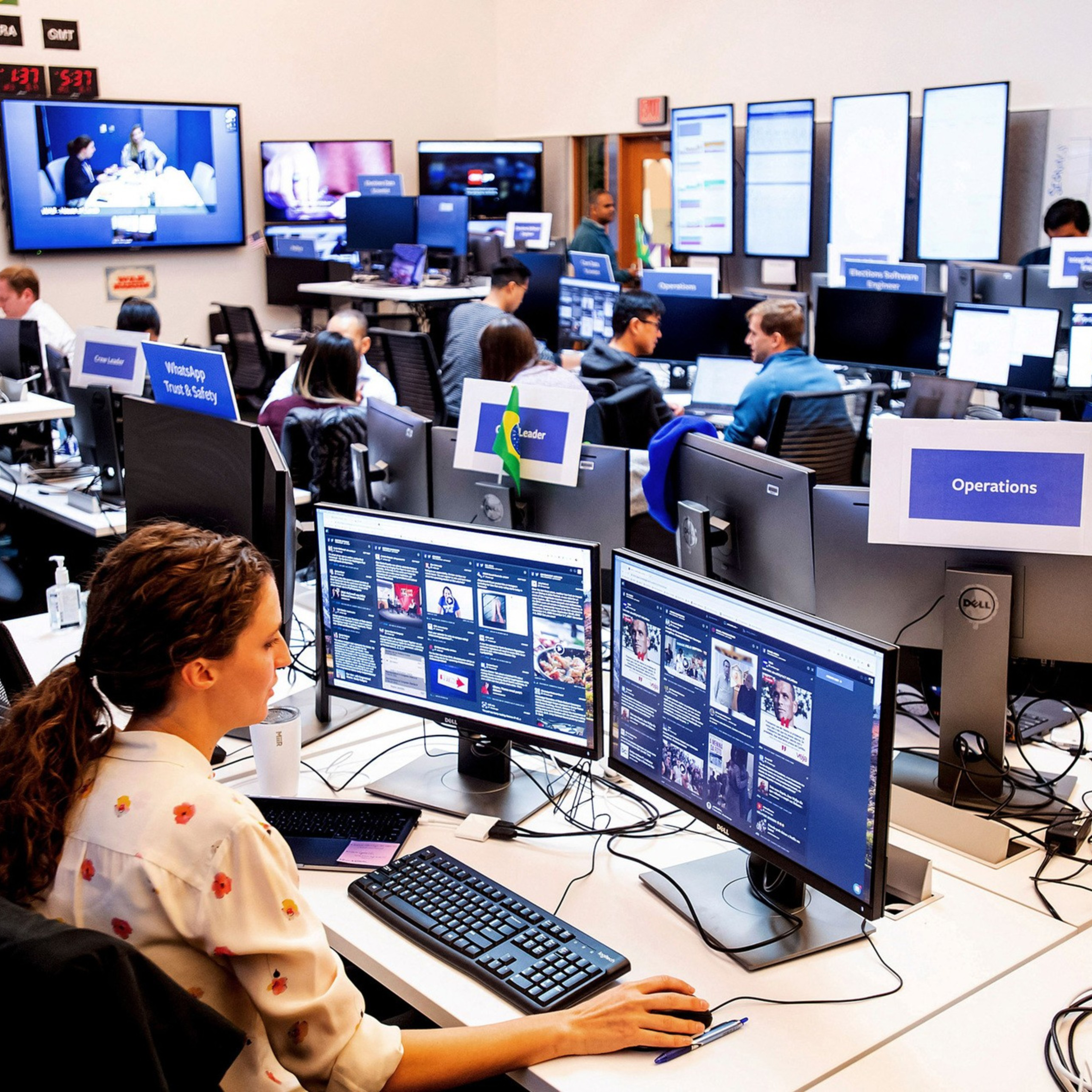Mark Zuckerberg surely knew that his critics, both within Meta and outside it, would lose their minds if he announced within a week that he was slashing the company’s efforts to both police content and diversify its workforce. He could have tried to ride the news cycle quietly.
Instead, he went on Joe Rogan’s podcast.
The billionaire’s posture on “The Joe Rogan Experience” was familiar to those tracking the un-apology tour of tech figures in the wake of Donald Trump’s reelection: a mixture of defiance and indignation.
Zuckerberg took aim at the Biden administration’s efforts to control information about the Covid pandemic on Meta’s platforms and explained his rationale for ending the long-standing fact-checking program (opens in new tab) on Facebook, Instagram, and Threads meant to curb the spread of misinformation.
Zuckerberg likened the effort to censorship, calling it “a slippery slope” and “something out of, like, you know, ‘1984.’”
Although the podcast had been recorded earlier, it was released the same day that Meta told employees it would ditch its flagship programs focused on diversity, equity, and inclusion.
The internal announcement was in line with a multi-pronged repositioning of the company that has included the hiring of a Republican public affairs chief and the appointment of Dana White, the UFC CEO and close Trump ally, to its board.
On the podcast, the tech mogul said he “started off very pro-free speech, free expression” but was cowed by media criticism of the company after Trump’s 2016 election. Nine years later, Zuckerberg implied he was unleashed, with a “much greater command now of what I think the policy should be.”
A report from The Intercept (opens in new tab) on training materials for Meta employees illustrated the wider range of permissible speech now allowed on the platform; these include examples like “Gays are freaks” and “Immigrants are grubby, filthy pieces of shit.”
As part of its elimination of DEI programs, Meta will no longer intentionally include members of underrepresented groups in final pools of job candidates, will sunset supplier diversity efforts, and will end equity and inclusion training, Janelle Gale, the vice president of human resources, wrote to employees in a memo that was viewed by The Standard.
Meta is also disbanding its internal DEI team; Chief Diversity Officer Maxine Williams will take a new role focused on accessibility and engagement, Gale wrote.
In 2021, the company pledged to spend (opens in new tab) $1 billion annually with diverse suppliers and set aside $100 million specifically for spending at Black-owned businesses. Now, Meta’s social media pages for global supplier diversity have been taken down.
“The term ‘DEI’ has also become charged, in part because it is understood by some as a practice that suggests preferential treatment of some groups over others,” Gale wrote. “At Meta, we have a principle of serving everyone.”
Meta said it will build programs that focus on mitigating bias for all, adding it had already ended representation goals for women and ethnic minorities because they created the impression that decisions were being made based on race or gender.
The announcement is an about-face from a company that has publicly championed its DEI efforts. In a 2022 blog post (opens in new tab) called “Why diversity, equity, and inclusion are a business priority,” the company profiled and lauded employees who “share a commitment to DEI.”
Messages expressing disappointment and anger flooded Workplace, Meta’s internal communications tool, following the announcement. Employees called the move “upsetting,” “disappointing,” and “incredibly disturbing” and lamented the company’s reversal from prior principles.
Meta has publicly reported diversity metrics since 2014 and shared its plans (opens in new tab) “to better support underrepresented people in our workforce and through our products.”
A Meta spokesperson confirmed that the company was ending its DEI programs.
Although the company did not confirm plans to continue releasing diversity metrics, it noted that standalone diversity reports were phased out several years ago. In their place, Meta in 2023 began publishing a Responsible Business Practices report (opens in new tab), covering a range of corporate data.
Do you work at Meta, or have you been affected by these changes? Contact [email protected] or rjetha.07 on Signal.

